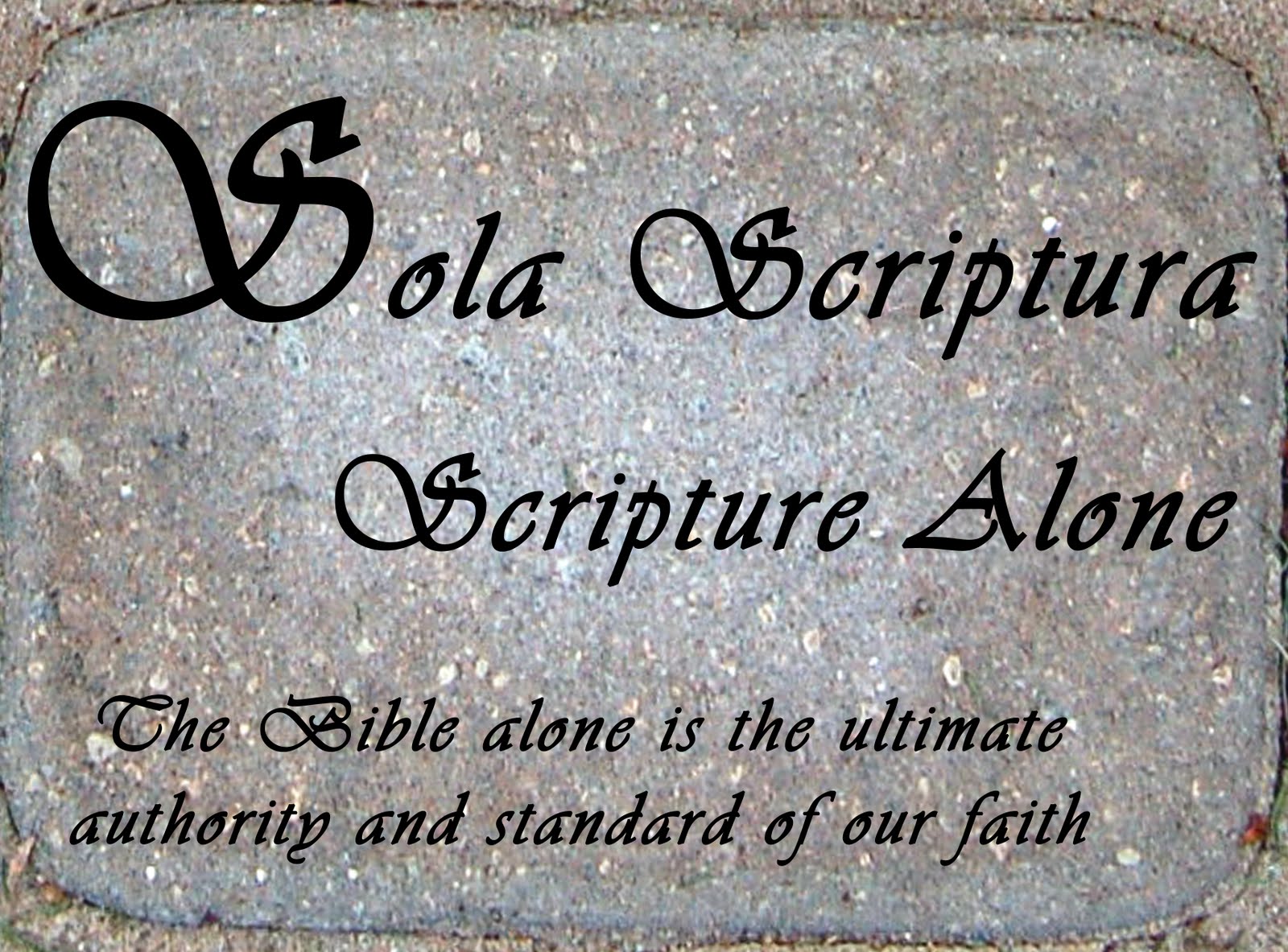(Ed. I have always sympathized with the proposed convenience of having God’s entire will contained in one attractive, portable, right-weight book one could carry around, proudly, and wave under the noses of all others, and know that I, Matthew P. McCormick, could open my portable oracle of the Almighty and thunder down His Most Holy Will!!!! It’s…just…incorrect. That’s all, and I am not a biblical scholar by any stretch of hallucination. And, I need help from the many lives of the many people, present and past, to whom I am most deeply grateful and humbled by, truly, who have devoted and spent their entire lives in #study, #contemplation, #reflection, and #scholarship, to help biblical #knuckle-draggers, and #backsliding-Catholics, like me, to have a hope of understanding some of the obtuse two to six thousand year old texts translated from ancient languages, none of which I can write, or read, or am even at the most basic level, introduced to, and hopeless in terms of nuance, context, and meaning. I am grateful for the professionals. I am just a poor, in all ways, sinner who wants to go to Heaven. I hear it’s AWESOME. That’s all. Just simple me. I NEED help!!! So many others tell me ALL the time I do. I do.)

-by Joel Peters
“The Bible says in 2 Tim. 3:17 that the man of God is “perfect, furnished to every good work.” As we noted above, this verse means only that the man of God is fully supplied with Scripture; it is not a guarantee that he automatically knows how to interpret it properly. This verse at most argues only for the material sufficiency of Scripture, a position which is held by some Catholic thinkers today.
“Material sufficiency” would mean that the Bible in some way contains all the truths that are necessary for the believer to know; in other words, the “materials” would thus be all present or at least implied. “Formal sufficiency,” on the other hand, would mean that the Bible would not only contain all the truths that are necessary, but that it would also present those truths in a perfectly clear and complete and readily understandable fashion. In other words, these truths would be in a useable form,” and consequently there would be no need for Sacred Tradition to clarify and complete them or for an infallible teaching authority to interpret them correctly or “rightly divide” God’s word.
Since the Catholic Church holds that the Bible is not sufficient in itself, it naturally teaches that the Bible needs an interpreter. The reason the Catholic Church so teaches is twofold: first, because Christ established a living Church to teach with His authority. He did not simply give His disciples a Bible, whole and entire, and tell them to go out and make copies of it for mass distribution and allow people to come to whatever interpretation they may. Second, the Bible itself states that it needs an interpreter.
Regarding the second point, we read in 2 Peter 3:16 that in St. Paul’s epistles there are “certain things hard to be understood, which the unlearned and unstable wrest [distort], as they do also the other scriptures, to their own destruction.”
In this one verse we note three very important things about the Bible and its interpretation: a) the Bible contains passages which are not readily understandable or clear, a fact which demonstrates the need for an authoritative and infallible teacher to make the passages clear and understandable; (8) b) it is not only possible that people could “wrest” or distort the meaning of Scripture, but this was, in fact, being done from the very earliest days of the Church; and c) to distort the meaning of Scripture can result in one’s “destruction,” a disastrous fate indeed. It is obvious from these considerations that St. Peter did not believe the Bible to be the sole rule of faith. But there is more.
In Acts 8:26-40 we read the account of the deacon St. Philip and the Ethiopian eunuch. In this scenario, the Holy Spirit leads Philip to approach the Ethiopian when Philip learns that the Ethiopian is reading from the prophet Isaias, he asks him a very telling question: “Thinkest thou that thou understandest what thou readest?” Even more telling is the answer given by the Ethiopian: “And how can I, unless some man show me?”
Whereas this St. Philip (known as “the Evangelist”) is not one of the twelve Apostles, he was nonetheless someone who was commissioned by the Apostles (cf. Acts 6:6) and who preached the Gospel with authority (cf. Acts 8:4-8). Consequently, his preaching would reflect legitimate Apostolic teaching. The point here is that the Ethiopian’s statement verifies the fact that the Bible is not sufficient in itself as a teacher of Christian doctrine, and people who hear the Word do need an authority to instruct them properly so that they may understand what the Bible says. If the Bible were indeed sufficient of itself, then the eunuch would not have been ignorant of the meaning of the passage from Isaias.
There is also 2 Peter 1:20, which states that “no prophecy of scripture is made by private interpretation.” Here we see the Bible itself stating in no uncertain terms that its prophecies are not a matter for which the individual is to arrive at his own interpretation. It is also most telling that this verse is preceded by a section on the Apostolic witness (verses 12-18) and followed by a section on false teachers (chapter 2, verses 1-10). St. Peter is obviously contrasting genuine, Apostolic teaching with false prophets and false teachers, and he makes reference to private interpretation as the pivotal point between the two. The clear implication is that private interpretation is one pathway whereby an individual turns from authentic teaching and begins to follow erroneous teaching.”
Love,
Matthew
(8) The assertion by Protestants that the Bible is its own interpreter is nothing more than an exercise in futility. They claim that a person can correctly interpret any given Scripture by comparing it with what the rest of the Bible teaches. The problem with this line of reasoning can be readily demonstrated. Ask ten people to give their respective interpretations of a given Scripture passage, and you could get as many as ten different explanations. If the Bible were able to interpret itself, as Protestants claim, why do you not always obtain ten identical interpretations, even if you allow these people an ample amount of time to conduct study and research? And if this diversity of interpretation is true for a mere ten people, imagine the results, when you multiply that number by one hundred, or one thousand, or one million. History has already seen such a result, and its name is Protestantism.

